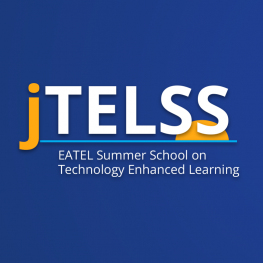Speakers
Edna Milena Sarmiento Marquez
Tallinn University, EstoniaParaskevi Topali
Radboud University, The NetherlandsGerti Pishtari
University for Continuing Education, Krems, AustriaAlejandro Ortega-Arranz
Universidad de Valladolid, SpainStart
16/05/2024 - 14:00
End
16/05/2024 - 15:30
Uncharted minds in digital realms: Introducing the evaluation of metacognitive processes in TEL
Thursday 16/05 14:00-15:30h
Workshop Space B
Needs Analysis
As technology continues to play an important role in education, being aware of how metacognition may be fostered and assessed in digital learning environments becomes increasingly crucial. Moreover, the assessment of metacognitive processes in digital learning environments presents unique methodological challenges. This workshop creates awareness around such challenges while empowering PhD candidates with tools and methodologies to overcome these challenges, strengthening the rigor and depth of their research in TEL.
Learning Objectives
By the end of the workshop, the participants will:
- Understand the concept of metacognition, the different assessment strategies for metacognitive activity, and how can technology support them.
- be aware of the scope and complementarity of different strategies to assess metacognitive activity in digital environments .
- Understand how to use H5P for the creation of interactive learning content that may foster metacognitive processes.
Pre-activities
The participants complete a Higher Order Thinking Skills exercise (e.g., problem-solving) in to a digital environment.
Session Description
The workshop will include a theoretical introduction to metacognition, how it is related to higher-order thinking skills, its importance to student learning, and how digital learning environments can both support and challenge metacognitive development. We will discuss different strategies used to foster and assess metacognitive processes in TEL and then proceed to the group work. Participants will analyze different types of data to understand the limits and benefits of each strategy. Next, we will present and discuss different cases of good practices in the assessment of metacognitive strategies in TEL. Finally, we will discuss potential challenges and solutions..




